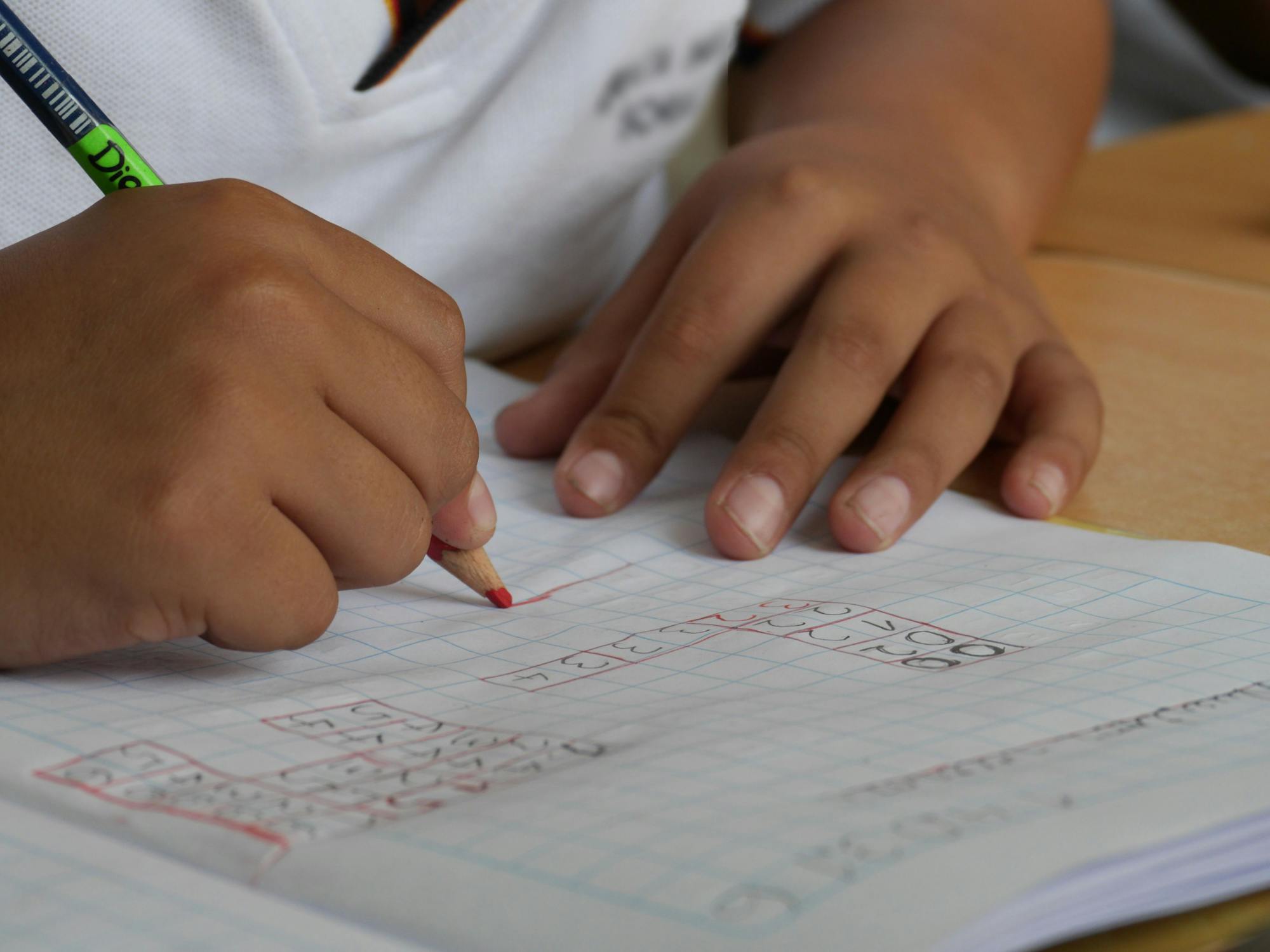What is life like for a Russian dissident in prison?
— I spent twenty-five months there. I had prepared myself for it mentally, because from the first day of the war in Ukraine I knew that if I didn’t leave Russia (and I wasn’t ready to) I would end up behind bars. Every day I woke up thinking: “If I’m not arrested today, it will be tomorrow”. And it was in the fourth month of the war. Prison is very hard physically and psychologically, because it is designed to subdue you, to break you as a person. It’s very easy to lose a part of your humanity there, because the atmosphere is very aggressive. But if you withstand the psychological pressure, it can also become a place of personal and even spiritual growth. Ironically, I think being in prison has made me more flexible. And I’ve learned to live with people who don’t think like me, to coexist peacefully and reach agreements. And I think this learning will be useful to me now.
Is there talk of war in Russian prisons?
— Prisoners have become a key source of human resources for Putin’s war. Many prisoners end up agreeing to go to war, because especially if they have long sentences it is the only chance to get out. Almost every prisoner I was with knew someone who went to Ukraine. But the most important thing is that they do not see it as a just war, neither patriotic nor noble. They see it only as a source of money or a way to shorten the sentence.
You were released in the exchange, but you had always said that you did not want to leave Russia. How do you feel that other opponents are still behind bars?
— They are very contradictory emotions. Obviously, I’m glad to be free: just two months ago I was walking around in handcuffs and in a cell with bad food and could only communicate with criminals or officials. Now I’m free, I can talk to you. And I can hug my mom every time she comes to visit me. But at the same time I feel very guilty, because I can’t help but think that someone else should have taken my place on the plane that took us out of Russia. I actually asked not to be traded because I was fully aware of my political stance. I am a Russian political activist and remained so in prison. I never considered leaving the country and I didn’t do it of my own free will. I was actually deported. And I see that many others remain in prison in danger of losing their lives. To Aleksei Gorinov [exregidor rus empresonat per criticar la guerra] he is missing a lung and could die at any moment. Maria Ponomarenko, a journalist serving a sentence just for reporting on the war, is tortured and on the verge of suicide. Igor Baryshnikov [activista també contrari a la guerra] has a tumor While I am free, they continue to rot in prison and their lives are in danger.
“I asked not to be exchanged because my political position was fully conscious. I am a Russian political activist, and I remained so in prison.”
Can there be political change in Russia with a population paralyzed by fear?
— Historical change in Russia is inevitable and the Putin regime is holding it back. And he slows it down with the use of force, but that won’t last forever. Very serious internal contradictions are piling up in Russia. What united people during those years was Putin’s promise of stability after the difficult reform era of the 1990s. Putin promised people peace and prosperity. And now it’s all over. People feel threatened, the country is increasingly isolated. The war in Ukraine has taken away the most important thing anyone can have: hope for the future. This is what Putin has stolen from us. Today Russia is in a very painful situation, in which it is desperately searching for its identity. The feeling is that everyone hates the rest. People argue all the time. And these accumulated contradictions will eventually explode. The debate that will begin in Russia after the end of the war will determine where the country will go.
What impact did Navalny’s death have on the Russian people, on the opposition and on yourself?
— Navalny was not just a politician. Like Boris Nemtstov, Navalny was a figure of systemic importance, around whom coalitions were formed and projects built. It was a very serious loss for Russian society, because especially people of my generation associated the future with Navalny. When they killed him, they killed hope. No one can take his place. I believe that the void he has left can only be filled by collective action. The Russian opposition has always been built around a big figure and I think now we need to replace it with solidarity at the most basic level. If we succeed we will have a chance.
What role do you think you can play in this change?
— One of the problems we have is the atomization of Russian society in general and also of the people who defend the values of freedom, humanism and democracy. With my example I want to show that we can participate in politics in a different way. And that’s why I hold events and debates on social networks. I want to show that we can talk to each other properly and respectfully and that we can find common ground for the future. This is the purpose of my tour of European cities to find compatriots who have had to leave Russia because of the war, because of Putin’s dictatorship. And I also do programs in streaming to address the people who have stayed in Russia.
When you denounced the massacre committed by the Russian army in the Ukrainian city of Butxa, you knew you would end up in prison. Why did he do it?
— Pocket was the excuse to stop me. I was imprisoned for not being silent and for telling people the truth about the war. The truth of what had happened in Butcha and many other war crimes that Putin’s army was committing in Ukraine. I knew that would land me in jail, but I couldn’t keep quiet. I think it was very important for a Russian politician to tell the truth about the war.
Do you think the Russian opposition should side with Ukraine in the war?
— There are different points of view, and that doesn’t worry me. Some think that it is necessary to collect money for the Ukrainian army and give them moral and political support; others collect aid for refugees; others defend Ukrainian prisoners of war in Russian courts. I think, like some others, that the political struggle against the Putin regime is the best way to stop its war machine. I do not participate in fundraising for the Ukrainian army and I consider my role to be to change public opinion within Russia.
What does he say about the Ukrainian offensive in Kursk?
— It hurts me that the war has reached my country, but I already warned from the first days that Putin would not have an easy time in Ukraine and that the war would eventually reach Russian territory. I’m not happy about it, but I understand the logic of the Ukrainian leaders: they don’t want Russian lands, but have made this offensive as a form of self-defense. They entered the Kursk region to strengthen their negotiating capacity. What is needed is for all Russian troops to withdraw from Ukraine. And when this has happened, there will not be a single Ukrainian soldier left on Russian territory. We must do everything possible to achieve this.
You met Pablo González, the Spaniard accused of espionage in Poland who was also released in the exchange and received by Putin in Moscow. What do you think about your case?
— Russia has recognized Pavel Rubtsov [el seu nom real] as a spy at the time he traded him. Putin met him at the foot of the plane to shake his hand and he was wearing a T-shirt that said The Empire Needs You [L’imperi et necessita]. The fact that he was included in a swap list with other spies, with Krasikov, even though many other Russian spies have been left behind in Western prisons, closes the debate. I have no doubt that Pavel Gonzalez is a Russian intelligence officer. I know that he worked against the Boris Nemtsov Foundation, which is run by his daughter Zhanna Nemtsova, and that he stole documents from her computer. But in my case it didn’t hurt me. It actually made me smile to think how the money is wasted by the Russian secret services. I spent a lot of time with Pablo: whenever he came to Spain we used to stay and the last time I was in Barcelona, five years ago, he showed me the city. And I don’t really understand what the point of his work was: it seems like he was doing a psychological profile on me, but I’ve always been a public figure, I know I’m under the microscope and I have nothing to hide. I think that when he met me he was convinced that I am not an extremist or a criminal. And I guess that’s the information he sent to Moscow. He didn’t hurt me, but the fact is that he pretended to be a reporter when in reality he was an agent gathering information. I must also say that I am glad that they put him on the list of the exchange, because this allowed to release real Russian journalists and activists, such as Vladimir Kara-Murza, Aleksandra Skotxilenko, Lilia Txanixeva or Ksenia Fadeeva. The release of Gonzalez for me is less painful than the release of Krasikov, who was a murderer.









Samuel4
on ‘My wife was pregnant for another man inside marriage’
27-09-2024 04:43:01am
Ishiro
on ‘My wife was pregnant for another man inside marriage’
23-06-2024 11:38:24am
Ishiro
on ‘My wife was pregnant for another man inside marriage’
23-06-2024 11:38:14am
Oladunni
on ‘My wife was pregnant for another man inside marriage’
22-06-2024 04:19:58pm
Candy100
on Man who made allegations against E-Money and late Junior Pope’s wife publicly apologizes
22-06-2024 08:02:49am
Candy100
on BREAKING: Kano Govt Makes Fresh Announcement Over Emir Sanusi Amid Tussle In Kano
21-06-2024 08:15:39pm
Candy100
on 2027: Obi gives condition for merger with PDP
21-06-2024 08:10:14pm
Candy100
on Hajj: Last set of FCT pilgrims to report at camp today
21-06-2024 08:09:27pm
Shakeerah
on BREAKING: Kano Govt Makes Fresh Announcement Over Emir Sanusi Amid Tussle In Kano
21-06-2024 08:40:05am